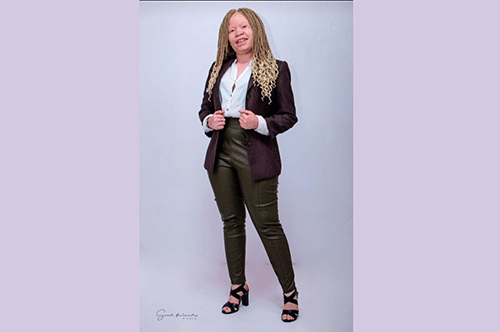People with disabilities are becoming more vocal on issues affecting them, but their biggest stumbling block is systems that are still not access-friendly for people with them.
Rozaline Joseph (26), a director on the National Youth Council board, said the fight continues to see people with disabilities in institutions, societies, education systems, job markets, decision-making positions and political participation, but the shift to incorporate disability dynamics is slow.
“It is important that society becomes accepting of people with disabilities, as they are a part of the functionality of society – not only in the key role as people with disabilities but also in other aspects as individuals,” she stated.
Joseph was speaking to Youth Corner shortly after taking on her new role as executive committee member for the Commonwealth Children and Youth with Disability Network (CCYDN) recently.
The CCYDN provides a platform for youth with disabilities to connect, share learning, and to develop skills and knowledge to advocate and influence on disability rights, inclusive of the Convention on the Rights of the Child (CRC) and the Convention on the Rights of Persons with Disabilities implementation at national and international levels.
“My role as an executive committee member for the CCYDN is to represent Namibia through strengthening and advocating for the collective voices to be included and represented in the Commonwealth and across the globe on issues surrounding disability.”
Part of her list of priorities is to be a strong voice and create a platform for children and young people with disabilities to strengthen their voices, increasing their representation and recognition in their roles as key agents, positive change makers in achieving disability rights, equity and better inclusive futures for all.
Joseph stressed the importance to increase disability representation in political settings so they can influence political processes such as policies and frameworks.
“Advocating for disability issues is not only for those who are currently disabled but to ensure that systems are put into place to cater to people with disabilities at any given time.”
She further emphasised the need to use the right terminology, stating that “people living with disabilities” should not be used anymore; the appropriate term is “people/persons with disabilities”.
According to the 2011 Namibia Statistics Agency’s disability report, there are 98 413 people with disabilities in Namibia – up from 42 932 in 1991.
That report also revealed that the highest fraction of persons with disabilities without any formal education is for those with visual impairment, while disability grants, agriculture and fisheries was noted to be the main sources of income for people with disabilities.
The armed forces were rated as the least source of employment or income. Meanwhile, Namibia has taken pride in its quest to remain committed, and ensuring access to quality and integrated services for everyone by developing national legislation and policies that promote the rights of children with disabilities.
- psiririka@nepc.com.na


